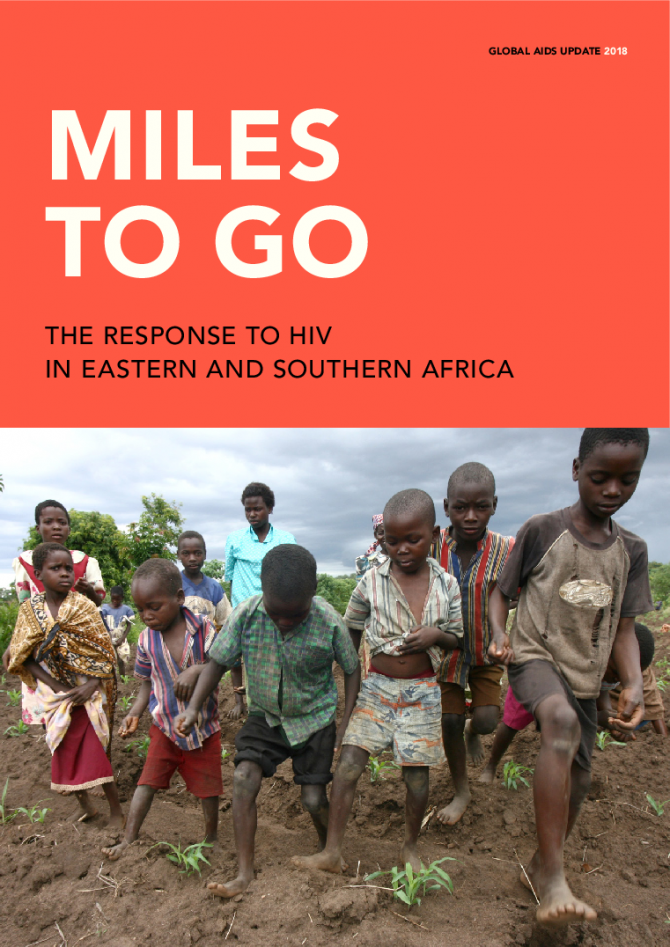Documents
Miles to go - The response to HIV in Eastern and southern Africa
12 August 2018
Eastern and southern Africa remains the region most
affected by the HIV epidemic, accounting for 45% of
the world’s HIV infections and 53% of people living
with HIV globally. Strong shared responsibility between
the region’s governments, civil society, international
donors and the research community is delivering steep
declines in HIV infections and AIDS-related mortality.
However, huge challenges remain. Gender inequalities
and gender-based violence, combined with physiological
factors, place women and girls in eastern and southern
Africa at huge risk of HIV infection. In 10 countries in the
region, laws and policies that require parental consent
to access sexual and reproductive health services
discourage adolescent girls from accessing the services
they need to stay healthy. Removal of these requirements
is needed, as is the rapid scale-up of intensive
combination prevention programme packages, including
elements that improve school attendance and empower
young women to mitigate their own risk.
Related
What the data tell us: Projections for the HIV epidemic in western and central Europe and North America in 2030
28 March 2025
What the data tell us: Projections for the HIV epidemic in the Middle East and North Africa in 2030
28 March 2025
What the data tell us: Projections for the HIV epidemic in eastern Europe and central Asia in 2030
28 March 2025
What the data tell us: Projections for the HIV epidemic in Asia and the Pacific in 2030
28 March 2025
What the data tell us: Projections for the HIV epidemic in western and central Africa in 2030
28 March 2025
What the data tell us: Projections for the HIV epidemic in eastern and southern Africa in 2030
28 March 2025
 Impact of US funding cuts on HIV programmes in Uganda
Impact of US funding cuts on HIV programmes in Uganda

19 March 2025


